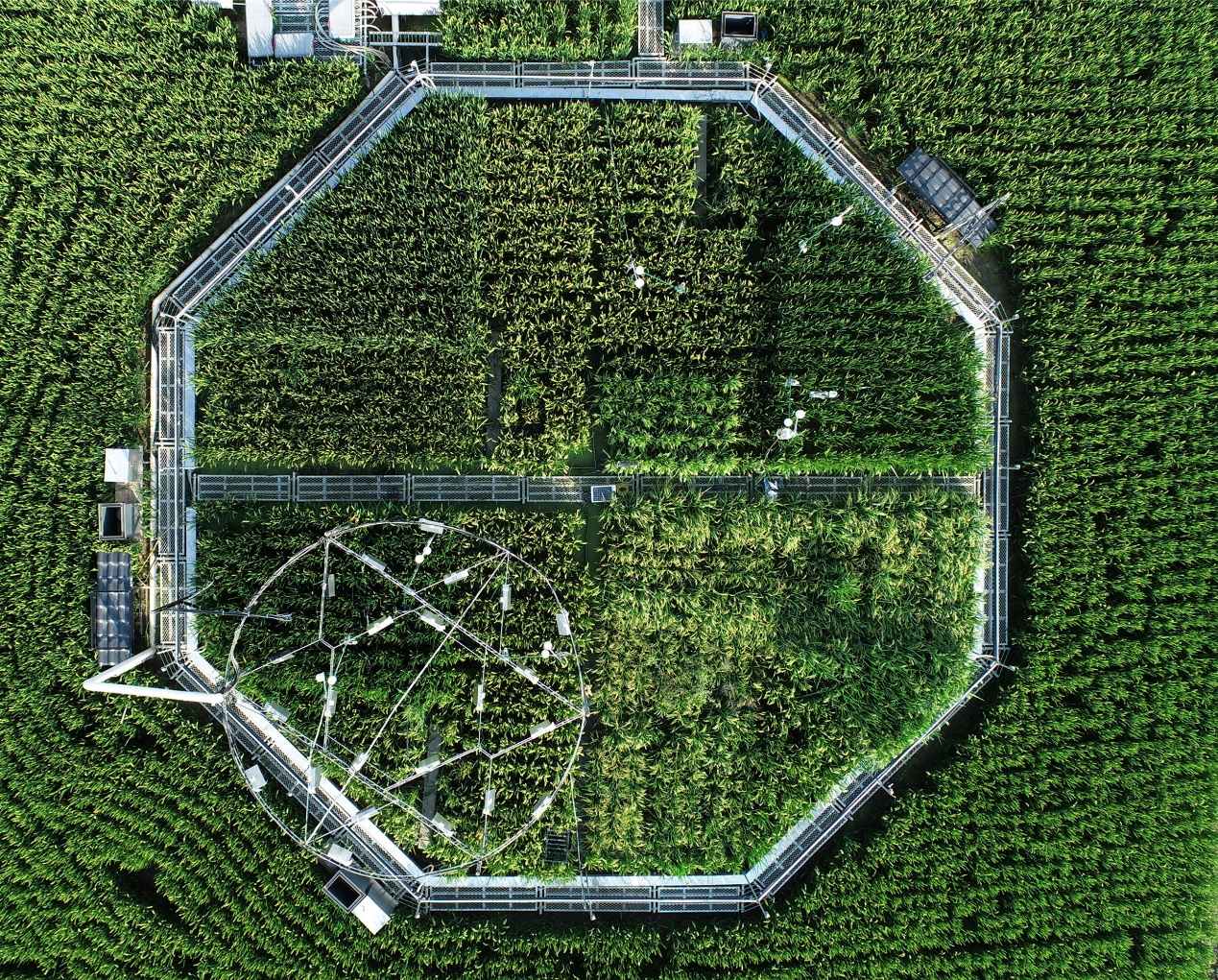
A research team led by Prof. ZHU Chunwu from the Institute of Soil Science, Chinese Academy of Sciences (ISSCAS) projected changes in global future rice yield under conditions of rising CO2 concentrations.
In a world grappling with climate change, rice, a staple food for over half of the global population, is of particular concern. While rising CO2 concentrations are expected to enhance rice yields, a new study uncovers disparities in these benefits between low and middle-to-high income countries.
The research, published in Nature Food, was conducted by an international team led by ISSCAS. The team performed a meta-analysis of field experiments and utilized crop modeling to predict future global rice yields for the world’s top 14 rice-producing countries.
The study found a robust parabolic relationship between the CO2 fertilization effect (CFE) on rice and temperature, with significant variations between rice subspecies. The projections indicate that global rice production in the 2050s could increase by 50.32 million tonnes (7.6%) due to CFE, compared to historical production. However, the benefits are not evenly distributed.
“Low-income countries may experience higher climatic warming, which could widen the yield gaps between middle-to-high-income and low-income countries under elevated CO2,” said Prof. ZHU Chunwu, the corresponding author of the study. “This underscores the critical role of CFE and emphasizes the necessity to increase investments in research and technology for rice-producing systems in low-income countries.”
The study also addresses the nutritional implications of elevated CO2 on staple crops. Previous research has shown that elevated CO2 can lead to a reduction in the nutritional quality of crops like rice, which could exacerbate malnutrition issues in poorer countries.
“Our findings indicate that the disparity in CFE on rice yield between low-income and middle-to-high-income countries may grow throughout this century, potentially worsening these nutritional concerns,” Zhu added.
The researchers call for coordinated efforts for climate change adaptation and mitigation, particularly in low-income countries. They emphasize the importance of investment in institutions, knowledge management, intellectual property rights, financial services, and market functioning to enhance the resilience of rice cropping systems and promote food security in the face of climate change challenges. The research provides valuable insights and guidance for policymakers, researchers, and practitioners in the fields of agriculture, climate change, and food security.

Aerial view of the CO2 increase and warming simulation facility (Free-Air CO2 Enrichment, FACE) for paddy ecosystem captured by a drone. (Image by SONG Lian)
Attachment Download: